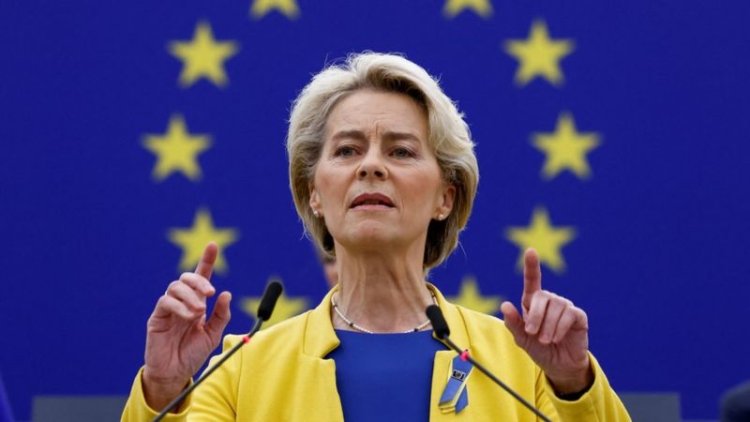Ukraine war: EU moves to cut peak electricity use by 5%
EU sanctions on Russia "are here to stay", she said, adding: "This is the time for us to show resolve, not appeasement."

Ursula von der Leyen, the head of the EU, has called for reductions in electricity consumption throughout the bloc and windfall taxes on energy companies to combat excessive prices.
She informed the European Parliament that following Russia's invasion of Ukraine, gas, and energy prices had reached all-time highs.
She demanded a minimum 5% reduction in the amount of electricity consumed during peak hours.
However, proposals to control the cost of natural gas, a significant Russian export to the EU, were postponed.
The Strasbourg plan calls for skimming off low-carbon electricity companies' earnings and enacting a de facto windfall tax on the oil, gas, and coal industries to raise "excess revenues."
The estimated €140 billion (£121 billion; $141 billion) in funds would benefit individuals and companies in all 27 member nations of the European Union.
In the hopes of reaching a consensus by the end of this month, the EU's member states will carefully consider the ideas.
The president of Ukraine, Volodymyr Zelensky, will be the subject of Ms. von der Leyen's second visit to Ukraine later on Wednesday. She made the announcement, stating: "Europe's solidarity with Ukraine will remain unshakeable."
Olena Zelensky, the wife of Mr. Zelensky, attended the address as a special guest in the legislature.
Making ends meet was "becoming a source of anxiety for millions of businesses and households," according to Ms. von der Leyen.
"In these times it is wrong to receive extraordinary record revenues and profits benefiting from war and on the back of our consumers," she argued.
'Russia's industry is in tatters'
EU sanctions on Russia "are here to stay", she said, adding: "This is the time for us to show resolve, not appeasement."
"Russia's financial sector is on life-support," she asserted, with nearly 1,000 international companies leaving the country.
"The Russian military is taking chips from dishwashers and refrigerators to fix their military hardware because they ran out of semiconductors. Russia's industry is in tatters."
Russia has so far largely managed to avoid the economic meltdown predicted back in the spring when sweeping sanctions were imposed. It has cushioned the blow with revenue from oil and gas sales.
Since June, Ukraine has been formally applying to join the EU.
It recently launched a counteroffensive to push back Russian forces, and this month, it reportedly reclaimed thousands of sq km of terrain in the east and south.
Ms. von der Leyen stated, "Now is the time to show resolve, not appeasement. We intend to stick with this for a while.
She expressed her belief that "[Russian President Vladimir] Putin will fail and Europe will prevail with courage and solidarity."
Russia, a major provider of energy, and the EU, which imposed severe sanctions in response to the invasion, are engaged in a financial war.
40% of the gas that the EU imported before the invasion came from Russia.
Since then, it has decreased to around 10%.
Gas prices in Europe were around ten times higher this summer than they had been on average over the previous ten years.
High gas costs also increase power bills since some of the gas is burned to produce electricity.
According to Ms. von der Leyen, EU member states have successfully built up their winter gas supplies to 84% of capacity, far ahead of a deadline in October.
She cited Norway, Algeria, and the United States as "reliable" gas sources.
She also disclosed plans to establish a European Hydrogen Bank to encourage up to €3 billion in investment in that fuel as a green substitute for fossil fuels.

 Boakyewaa Lawrencia
Boakyewaa Lawrencia 


































